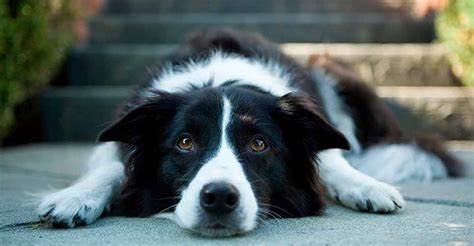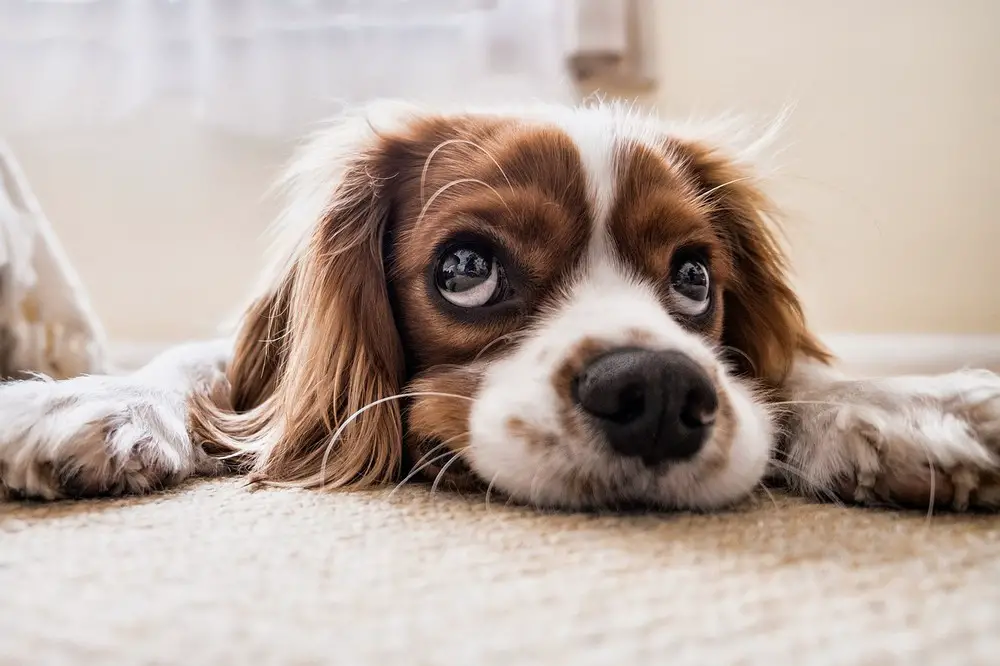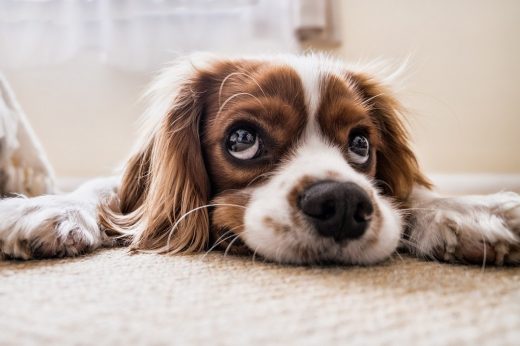My dog won’t stop licking! What to do about it?, Pet health tips, Animal epileptic seizure guide
My Dog won’t Stop Licking! What to do about it?
10 July 2023
Dogs are known for their grooming habits, but when excessive licking occurs, it can be a cause for concern. Most dogs will lick a few common areas – between the toes, on the forearms, on the joints and on the belly.
If your dog shows hair loss, red skin or fluid oozing from any part of the body, or if your dog moans or wails when he focuses on an area or even bites or chews vigorously on those areas, this is a sign of excessive licking. Excessive licking in dogs, also known as over-grooming, may indicate an underlying health problem or behavioral issue. In this article, we will explore the various causes of excessive licking in dogs and discuss the importance of identifying and addressing these potential factors.
Why My Dog Won’t Stop Licking?
1.Infections and Skin Conditions
One of the common causes of excessive licking in dogs is the presence of infections or skin conditions. Dogs may lick excessively to alleviate itchiness caused by conditions such as dermatitis, mange, fungal or bacterial infections, hot spot or allergies.
Hot spot
A hot spot, also known as acute moist dermatitis, is a skin condition that commonly affects dogs. It is characterized by red, inflamed, and oozing sores that can be quite painful. Hot spots often occur due to allergies, flea bites, insect bites, or excessive licking and scratching.
Dermatitis
Dermatitis refers to inflammation of the skin in dogs. It can have various causes, including allergies, parasites (such as fleas or mites), bacterial or fungal infections, irritants, or underlying health conditions. Symptoms may include redness, itching, hair loss, sores, and a foul odor can cause dogs to lick excessively.
Fleas, mites and other parasites
Your veterinarian may perform a deep skin scrape, a diagnostic test that penetrates deep into the hair follicles to rule out any ectoparasites such as fleas or mites, which are notorious for itching. Some of the mites your veterinarian will look for are infectious to humans, so identifying them is critical.
2. Allergies
Allergies, whether they are food allergies, environmental allergies (such as pollen or dust mites), or contact allergies (such as certain fabrics or cleaning products), can trigger excessive licking in dogs. Allergic reactions often manifest as itchiness and irritation, leading dogs to lick excessively in an attempt to soothe their discomfort.
Food allergies
Food allergies in dogs occur when their immune system reacts negatively to certain ingredients in their diet. Common allergens include proteins like beef, chicken, dairy products, wheat, soy, and corn. Symptoms of food allergies can vary but often include itching, skin rashes, gastrointestinal issues (such as vomiting or diarrhea), and ear infections. So there will be dogs licking their bellies or paws.
Environment allergies
Dogs can also be allergic to environmental factors such as pollen, dust mites, mold, grass, or certain types of trees or plants. Environmental allergies often manifest as skin problems, respiratory issues (like sneezing or coughing), and excessive itching or paw licking.
3.Pain
Dogs may lick excessively as a response to pain or discomfort. Pain can stem from various sources, including arthritis, injuries, dental problems, or even surgical procedures. Excessive licking in specific areas may indicate pain in those regions. It is essential to have a veterinarian evaluate the dog to identify and address the underlying cause of pain, providing appropriate pain management strategies.
Arthritis
Arthritis is a degenerative joint disease that commonly affects older dogs but can also occur in younger ones. It involves the inflammation of joints, leading to pain, stiffness, reduced mobility, and discomfort. Risk factors for arthritis include genetics, obesity, previous injuries, and certain breeds. Treatment options may include weight management, exercise, physical therapy, joint supplements, anti-inflammatory medications, and pain relief prescribed by a veterinarian.
Dental problems
Dental problems in dogs, such as periodontal disease, tooth decay, and gum infections, are quite common. Poor dental hygiene can lead to plaque and tartar buildup, which can progress to more severe issues if left untreated. Signs of dental problems in dogs include bad breath, tooth discoloration, swollen gums, difficulty eating, and tooth loss. Regular brushing, dental cleanings by a veterinarian, dental diets or treats, and appropriate chew toys can help maintain good oral health in dogs.
4. Nausea
Excessive licking can also be a manifestation of nausea or gastrointestinal issues in dogs. Dogs may lick their lips excessively or lick other surfaces to cope with feelings of queasiness. Persistent nausea should be investigated by a veterinarian to determine the cause and provide appropriate treatment.
5. Anxiety/Behavioral Issues
Excessive licking can be a behavioral response to anxiety, stress, or boredom. Dogs may engage in excessive grooming as a self-soothing mechanism. Separation anxiety, fear, changes in the household, or lack of mental and physical stimulation can trigger these behaviors. Identifying and addressing the underlying behavioral issues through behavior modification techniques, environmental enrichment, and professional guidance can help reduce excessive licking.
6. Other Health Issues
Several other health issues can lead to excessive licking in dogs. Hormonal imbalances, such as hypothyroidism or Cushing’s disease, can cause changes in skin and coat, leading to increased licking. Neurological disorders or sensory abnormalities can also contribute to excessive licking behaviors. If your dog is concentrating on licking the rectum or groin, they may be experiencing an anal sac, urinary tract or genital infection. Identifying these underlying health issues through veterinary examinations is crucial for effective treatment.
How to Deal with Excessive Licking
Excessive licking can be a challenging behavior to deal with, especially when it becomes disruptive or causes harm. The approach to addressing this issue depends on the context in which the licking occurs.
Determine the underlying cause
Observing the circumstances surrounding the licking can help identify potential triggers or patterns. If you suspect a medical issue, consult with a veterinarian to rule out any underlying health problems.
For Hot Spot or Skin Problems
Your veterinarian may give you antifungal sprays and steroids, antibiotics, etc. to repair your dog’s skin and relieve itching, redness, and sores.
For Anxiety/Behavioral Issues
Often, excessive licking can result from boredom or a lack of mental and physical stimulation. Make sure your pet receives regular exercise, playtime, and environmental enrichment. Engage in interactive play sessions and provide puzzle toys or treat-dispensing toys to keep them occupied.
Offer a chew toy or engage them in a game to redirect their focus and provide an outlet for their oral fixation.
For other causes that are difficult to identify, it is best to seek veterinary assistance to determine the cause of the disease and then treat it, your dog will heal more smoothly.
My dog will not stop licking Conclusion
Licking and overgrooming can be painful and stressful. Since dogs aren’t able to talk, it is up to pet parents and veterinary professionals to work together to act as detectives and resolve the underlying issue so your dog can get back to living their best life.
Comments on this My Dog Won’t Stop Licking! What To Do About It? article are welcome.
Dogs
Dog Care and Pet Health – recent selection from e-architect below:
GPS Dog Fence Vs In-ground Dog Fence
How helpful CBD oil is for dogs with anxiety
CBD Oil and how it can help fight epilepsy in dogs

Designing a pet-friendly kitchen tips
Building Articles
Contemporary Property Articles – architectural selection below:
Comments / photos for the My Dog Won’t Stop Licking! What To Do About It advice page welcome



